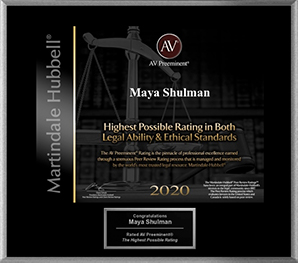You’ll notice I write a lot about international family law issues. The global economy has created more cross-border marital dissolution, child custody, adoption and now surrogacy issues than ever before. I am particularly interested in developing law, and my agenda is to ensure decisions are made with the best interests of the family as the priority.
The U.S. State Department opinion differs from mine, however, in its application of a law passed long before fertility treatments, surrogacy, sperm donors and same-sex marriage that determines citizenship born to Americans overseas through a noncitizen surrogate. Notably, the State Department decisions adversely impact children born to married same-sex couples. A heterosexual married couple with children — even one in which one partner is a foreign national — would not typically be asked to prove a genetic relationship because genetic relationship is presumed.
The State Department currently faces two lawsuits and one potential filing regarding surrogacy citizenship:
- The Dvash-Banks twins were born four minutes apart to a surrogate in Canada, but only one is a U.S. citizen. Because Elad Dvash-Banks, who is legally married to Andrew Dvash-Banks, is not a U.S. citizen, the twin he sired is not a citizen and his birth is “out of wedlock,” according to the State Department. A California court decided in February that both twins are entitled to a U.S. passport. In May, the DOJ appealed the ruling to the 9th U.S Circuit Court of Appeals. The DOJ pinned its action on a U.S. State Department interpretation of the Immigration and Naturalization Act requiring a child born abroad be biologically related to a U.S. citizen parent to acquire U.S. citizenship at birth.
- Married U.S. citizen Allison Blixt and Italian citizen Stefanie Zaccari both had children in the United Kingdom using an unknown sperm donor. The State Department only granted citizenship to the child Blixt birthed. In Blixt v. U.S. Department of State, filed early last year, the couple argues that the State Department applied the wrong law to Zaccari’s biological child. Neither child was born “out of wedlock,” Blixt argues, since Zaccari was married to Blixt when she birthed her child. That application is unlawful, unconstitutional and absurd, the complaint says.
- Most recently, citizenship was denied to the U.K.-born child of U.S. citizens James Mize and Jonathan Gregg because biological father Gregg was born in the United Kingdom to a U.S. mother but had not resided in the United States for the requisite time, 20 years. The couple, which just received their daughter’s citizenship denial in April, now live in Atlanta but wonder if their child faces deportation.
The U.S. surrogacy map explains why so many births take place in other countries. Surrogacy is legally prohibited in four states and the District of Columbia; surrogacy agreements are legally unenforceable in three states; 11 states permit surrogacy if certain conditions are met; in five states statutes or case law support surrogacy but results vary by venue; and in 20 states, no statute or case law expressly prohibits surrogacy. Only seven “green light” states — California, Connecticut, Delaware, New Hampshire, Rhode Island, Nevada and Wisconsin — legally recognize surrogate contracts. Odd, considering that same-sex marriage — with the attendant right to parent children — is legal in all 50 states. Odder that the Department of Defense gives surrogacy benefits to enlisted service members. Odder still that recent data from the Centers for Disease Control shows that infertility affects one out of every ten couples. Surrogacy would seem to be a critical resource for a large segment of the population.
In addition to the significant assisted reproduction costs, couples now may have to tack on costs associated with reports, paperwork and documentation to support citizenship applications. The State Department’s stance should make couples think twice before embarking on foreign surrogacy excursions.
The best course of action for couples considering surrogate birth is to make things easy: Contract with a surrogate in a “green” state. Failing that, consult with an immigration attorney before pursuing an overseas surrogate birth. These are complex issues that invoke ethical and religious considerations. States have been divided over a range of reproductive issues, from abortion to the treatment of frozen embryos — should they be considered personal property, human beings, or something else?
As with many changes in the law to reflect societal adjustments and technologic advances, the law surrounding surrogacy is moving slowly but in the direction that embraces parental opportunities for nontraditional families. With the help of the judicial and legislative branches of government, the challenges to the State Department’s decisions are about the move the needle, but it will be some time yet before these issues are resolved in a way that reflects both scientific and societal developments.







